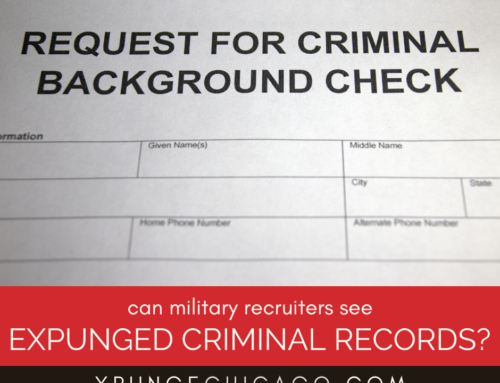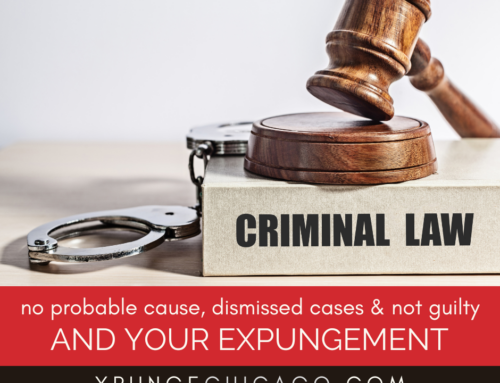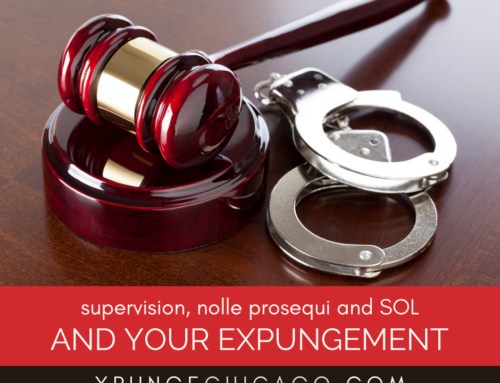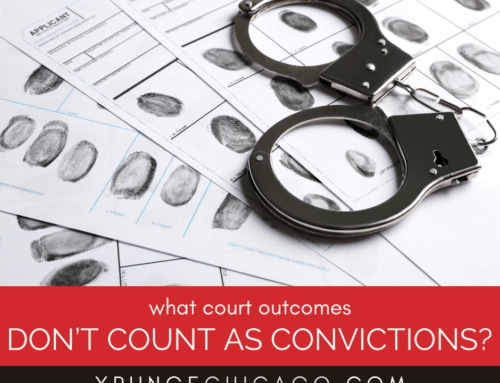
Many people wonder if it’s possible to expunge an arrest record, especially if they were never convicted. The good news is that in Illinois, you often can, and a lawyer can be instrumental in this process.
Can You Expunge an Arrest Record if You Were Never Convicted?
Understanding your options for expunging an arrest record in Illinois is crucial, particularly if you were never convicted. This guide explains the following:
- Eligibility for expunging an arrest record
- The role of a lawyer in expunging your record
- The process of expungement in Illinois
- The benefits of expunging an arrest record
- Preparing for the expungement process
Here’s a closer look at each.
Eligibility for Expunging an Arrest Record
In Illinois, you’re eligible to expunge your arrest record if you were arrested but not convicted. This includes cases where charges were dropped, you were acquitted, or the conviction was vacated or reversed.
Related: Expungement information
The Role of a Lawyer in Expunging Your Record
A lawyer can guide you through the expungement process, offering advice based on their experience. They’ll handle the necessary paperwork, file the petition, and represent you in court if required. Their knowledge of the legal system can be a significant asset in navigating the complexities of expungement.
The Process of Expungement in Illinois
The expungement process involves filing a petition with the court. This petition must include specific details about your arrest and any subsequent legal proceedings. A lawyer can ensure that your petition is accurate and complete, which is crucial for a successful outcome.
The Benefits of Expunging an Arrest Record
Expunging your arrest record can have several benefits. It can improve your chances of securing employment, housing, and educational opportunities. It also provides peace of mind, knowing that your arrest record won’t impact your future.
Related: What shows up on a background check in 2024?
Preparing for the Expungement Process
To prepare for expungement, gather all documents related to your arrest and any legal proceedings. Be open and thorough when you explain your history to your lawyer, as this will help them build a stronger case for your expungement.
FAQ About Expunging an Arrest Record in Illinois
Check out these commonly asked questions about expunging an arrest record in Illinois.
What’s the First Step in Expunging My Arrest Record?
For many people, the first step is to consult with a lawyer who can assess your case and determine your eligibility for expungement.
How Long Does the Expungement Process Take?
The expungement process can vary in length, but it generally takes several months. A lawyer can help streamline the process.
Related: 5 great reasons to expunge your criminal record
Can All Arrest Records Be Expunged?
Not all arrest records are eligible for expungement. The eligibility depends on the nature of the arrest and your criminal history.
What Information Do I Need to Provide for Expungement?
You should provide detailed information about your arrest, including the date, charges, and the outcome of any legal proceedings.
Related: Life after expungement: Disclosing your past
How Can I Ensure a Smooth Expungement Process?
To ensure a smooth process, follow your lawyer’s advice, submit all required documentation on time, and attend any necessary court hearings.
In conclusion, expunging an arrest record in Illinois is a viable option for many, especially if you were never convicted. A lawyer can play a crucial role in this process, using their experience to guide you and handle the legal intricacies. With their assistance, you can navigate the expungement process more effectively, working towards clearing your record and moving forward with your life.
Do You Need to Talk to an Attorney About Expungement or Sealing?
If you’re tired of your criminal past coming back to bite you, we may be able to help. Call us right now at 847-920-4540 or fill out the form below so we can talk about your case.
Oops! We could not locate your form.















